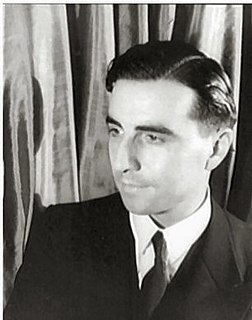A Quote by Plato
Poets utter great and wise things which they do not themselves understand.
Quote Topics
Related Quotes
We must take our sentences seriously, which means we must understand them philosophically, and the odd thing is that the few who do, who take them with utter sober seriousness, the utter sober seriousness of right-wing parsons and political saviors, the owners of Pomeranians, are the liars who want to be believed, the novelists and poets, who know that the creatures they imagine have no other being than the sounding syllables which the reader will speak into his own weary and distracted head. There are no magic words. To say the words is magical enough.
Poets are the hierophants of an unapprehended inspiration; the mirrors of the gigantic shadows which futurity casts upon the present; the words which express what they understand not; the trumpets which sing to battle, and feel not what they inspire; the influence which is moved not, but moves. Poets are the unacknowledged legislators of the world.
For men and women are not only themselves; they are also the region in which they are born, the city apartment or farm in which they learnt to walk, the games they played as children, the old wives tales they overheard, the food they ate, the schools they attended, the sports they followed, the poets they read, and the God they believed in. It is all these things that have made them what they are, and these are the things that you can't come to know by hearsay.
Nearly all men and women are poetical, to some extent, but very few can be called poets. There are great poets, small poets, and men and women who make verses. But all are not poets, nor even good versifiers. Poetasters are plentiful, but real poets are rare. Education can not make a poet, though it may polish and develop one.
I think that what's happening today, with all the young poets rushing from one college to another, lecturing at the drop of a hat and so on, is not too good; I think it might have a bad effect on a great many of the young poets. They - to quote Mark Twain - "swap juices" a little too much, so that they are in danger of losing their own identity and don't give themselves time enough in which to work out what's really of importance to them - they're too busy.
Quick condemnation of all that is not ours, of views with which we disagree, of ideas that do not attract us, is the sign of a narrow mind, of an uncultivated intelligence. Bigotry is always ignorant, and the wise boy, who will become the wise man, tries to understand and to see the truth in ideas with which he does not agree.








































